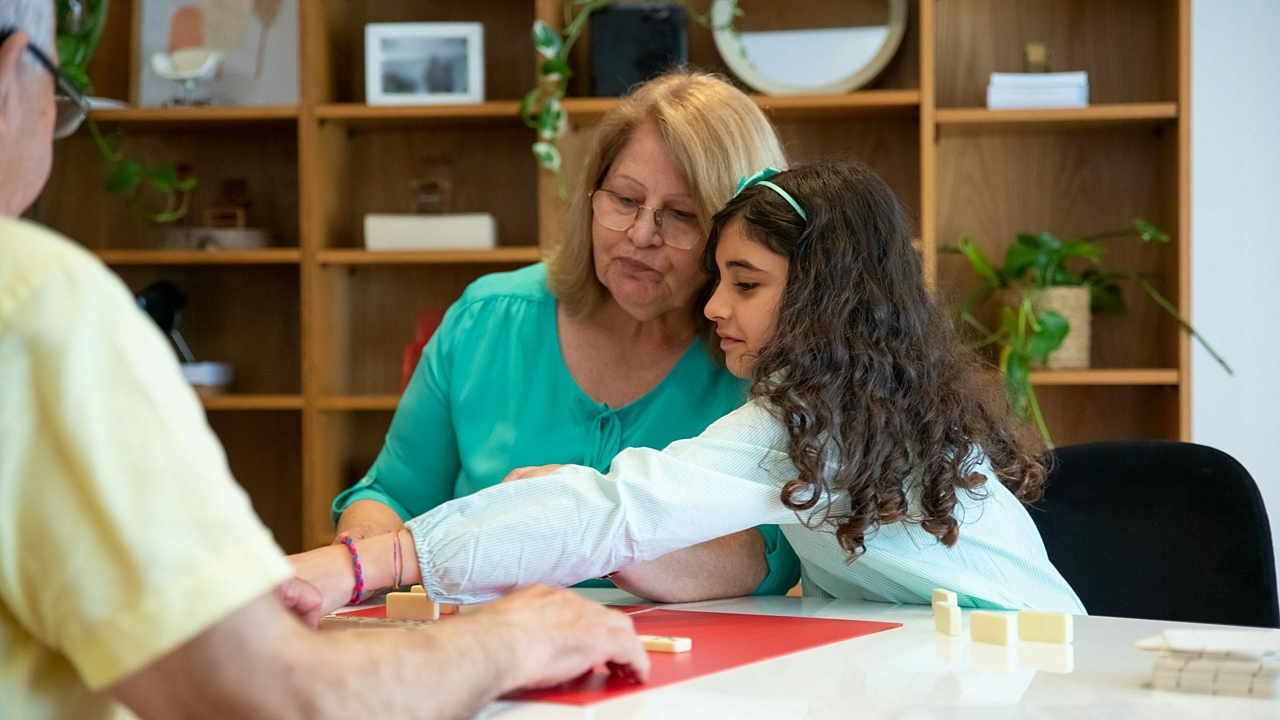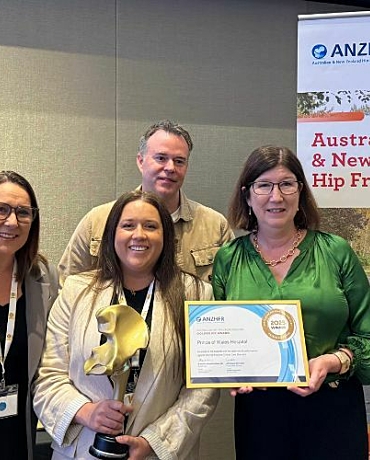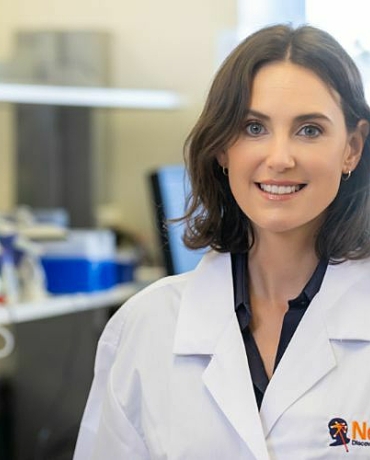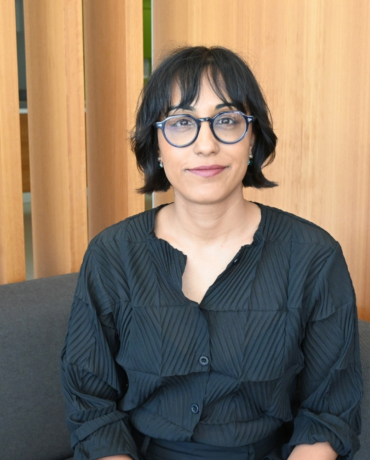Associate Professor Ruth Peters, senior researcher at Neuroscience Research Australia (NeuRA) and UNSW Science, has been awarded a $3.7 million National Health and Medical Research Council (NHMRC) Clinical Trials and Cohort Studies Grant to investigate and evaluate in community settings the potential for Intergenerational Practice to reduce frailty in older adults and improve school readiness in children.
The funding will enable researchers from eight leading Australian and international universities and research institutes to undertake the INTErGenerational Intervention to Reduce fraIlTY (INTEGRITY) trial – a world-first study bringing together older adults and preschool children in community settings for activities that target physical, cognitive and social engagement.
Frailty has been described as a ‘public health crisis for an ageing society’. It is defined as a multidimensional syndrome characterised by a loss of reserves (physical ability, cognition, health) that results in vulnerability and often leads to increased care needs, early transition to aged care, morbidity and mortality. An estimated 12 – 24% of older adults are defined as frail, and a further 40% are considered ‘prefrail’ or mildly frail. INTEGRITY trial lead researcher, Associate Professor Ruth Peters, said reducing frailty and helping older adults to remain independent are vital to the whole community.
“Being frail is associated with five times the risk of transition to residential care and double the risk of hospitalisation. If intergenerational practice programs can stabilise, reverse or slow the progression of frailty, they have the potential to help maintain independent living, delay transition to aged-care, reduce the requirement for healthcare resources and strengthen our societies,” said Associate Professor Peters.
“TV shows like the ABC’s award-winning ‘Old People’s Home For 4 Year Olds’ have shown the potential on-screen benefits of bringing together older adults and pre-schoolers. But a TV show is not the same as everyday life. This significant grant funding will now enable us to provide the first robust empirical evidence of the impact community-based intergenerational practice programs have for young and old across Australia.”
The four-year INTEGRITY trial will see researchers establish up to 44 ‘clusters’ of approximately 10 local adults 65 and over and 10 local children aged 3 – 5 to test a community-based and co-developed program that is designed to be generalizable, replicable and led by communities in preschools and within community spaces anywhere in Australia.
The study will combine multidisciplinary expertise in frailty, ageing, intergenerational practice, neurology, geriatric medicine, psychology and physiotherapy and builds on pilot studies that illustrate the feasibility and potential for implementing intergenerational practice programs on a national scale at relatively low cost.
If the results of the trial show that intergenerational practice programs can reduce frailty the next step will be to develop evidence-based materials that communities can download and use to build their own local programs.
For all media enquires
Michelle Smith
0452 140 477 / email hidden; JavaScript is required
For all research trial enquiries
Dr Ruth Peters
02 9399 1015 / email hidden; JavaScript is required




